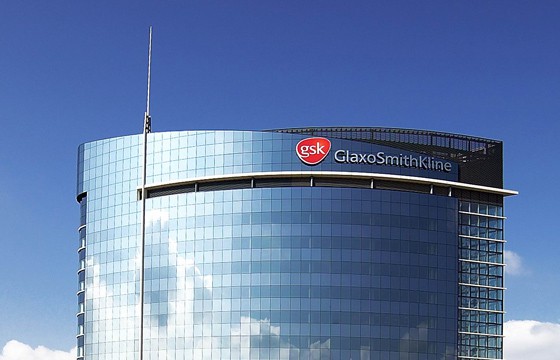

GlaxoSmithKline and Pfizer are to combine their consumer healthcare businesses into a single company with annual sales of almost $13bn in an all-equity deal.
The new joint venture will be chaired by GSK’s CEO Emma Walmsley, who headed up the consumer health business at GSK before taking the helm of the company, and GSK will own a 68% stake.
Walmsley said this morning that the intention is to eventually spin off the combined business into an independent UK-listed company via a de-merger within three years, allowing it “a clear pathway forward for GSK to create a new global pharmaceuticals/vaccines company, with an R&D approach focused on science related to the immune system, use of genetics and advanced technologies.”
The JV will be the biggest over-the-counter (OTC) product player in the world with a market share of 7.3%, ahead of its nearest competitor (Bayer) at 4.1%. The deal brings together brands such as GSK’s Sensodyne and Aquafresh toothpastes and Panadol painkillers, and Pfizer’s Advil painkiller range, Centrum multivitamins and ChapStick lipcare products, into one entity that will be known as GSK Consumer Healthcare.
The deal is the latest strategic move in consumer health for GSK, after it acquired full control of its joint venture with Novartis in March in a $13bn deal – which came after it decided against making a formal offer for Pfizer’s unit – as well as a series of divestments including the $3.1bn sale of Horlicks and other consumer healthcare nutrition products to Unilever India.
In the meantime, it has agreed a $5.1bn takeover of cancer company Tesaro to bolster its pharma pipeline. That has been viewed with scepticism by some analysts, but investors seemed to be happy with the latest announcement – shares in GSK were up more than 7% in early morning trading today.

Walmsley: spin-out will help support pharma pipeline
Walmsley said the consumer health JV would be able to deliver stronger sales, cash flow and earnings growth, and “help support GSK’s future capital planning and further investment in our pharmaceuticals pipeline.”
She also said that there would also be opportunities for “substantial cost synergies”, but there’s no word yet on where those savings will be made. It thinks it can carve £500m off its costs by 2022, and says that some job losses are expected.
Ultimately, the plan is to create “two exceptional, UK-based global companies, with appropriate capital structures, that are each well positioned to deliver improving returns to shareholders and significant benefits to patients and consumers.”
Apart from GSK’s Nigerian subsidiary – which is excluded from the deal – the JV will operate in all countries where GSK and Pfizer currently have a presence.
GSK has agreed to pay a break fee of $900m if the board changes its recommendation or shareholders do not approve the proposed transaction, which is expected to close in the second half of 2019.
Commenting on the move, John Colley, Professor of Practice at Warwick Business School, said it was in response to a longstanding pressure to act.
“Like her predecessor, GSK CEO Emma Walmsley has been under significant shareholder pressure to divest the consumer health division as having little in common with the main pharmaceuticals business.
“In effect this is consumer brand management of largely generic drugs. GSK’s shares have suffered as a consequence.
“The deal with Pfizer makes strong commercial sense, delivering the capability for scale and scope economies and growth potential. The deal will no doubt create significant value for shareholders.
“However one suspects that there are limited links between the current consumer healthcare division and the rest of the business, so why will it take so long for the carve out and separate listing to be undertaken?
Nevertheless, Colley said the three year timescale seemed unnecessarily long, and said it could be linked to Walmsley’s ‘close affinity’ to the division.




